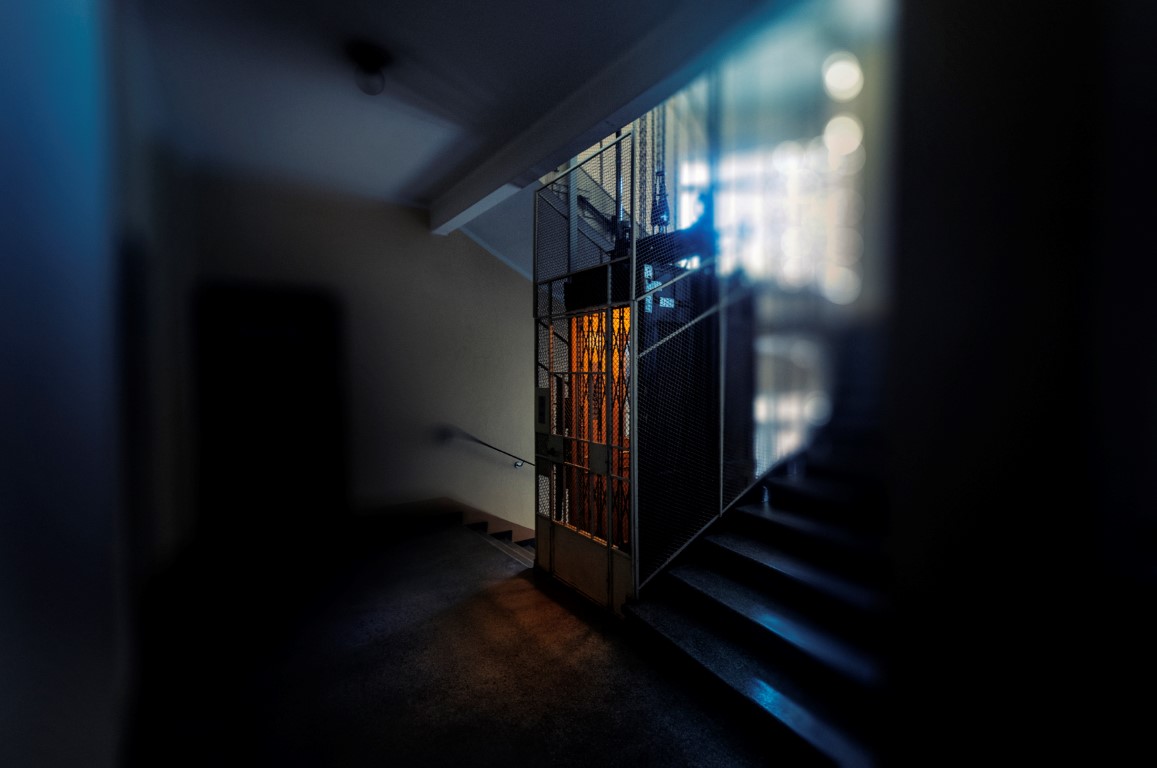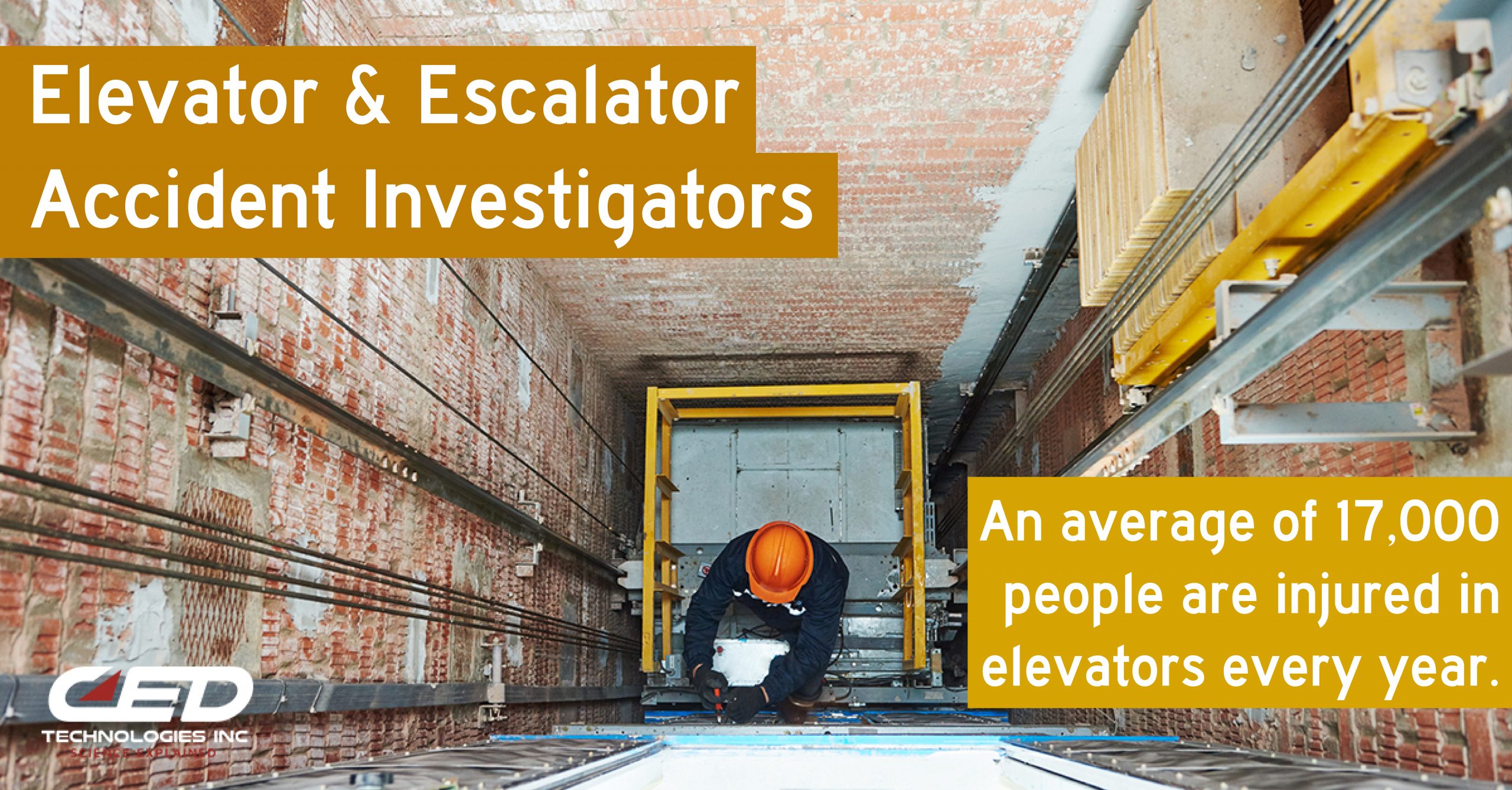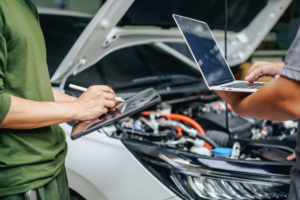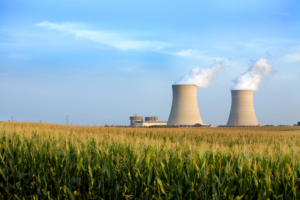Escalator & Elevator Accident Investigating
Do you need a state certified inspector?
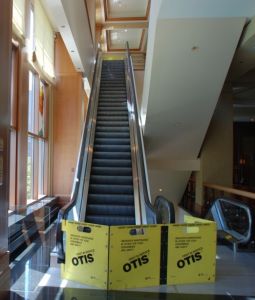
It is now the holiday season and every year escalators and elevators transport millions of people to their destination. While this type of transportation is considered among the safest form in the world, accidents involving escalators and elevators do occur, particularly in large cities where these types of travel are common. Most injuries incurred on escalators or elevators take place when people are entering or exiting the apparatus. Clothing, such as drawstrings, shoe laces, or loose fabric can potentially get caught resulting in personal injury. Possible injury could be the result of a slip and fall event on a surface while entering or exiting the apparatus. In some cases, damage could be caused by limbs caught in closing elevator doors which malfunction and do not re-open.
At first glance, one may consider a state certified elevator/escalator inspector as the right choice for an expert. However, the typical inspector may not understand what is required for litigation support. Their ability to deliver effective written opinions as well as oral in deposition and trial will be paramount. Instead, a professional forensic engineer can help you understand the proper equipment operation and the state inspection process. Engineering experts bring an investigation process that includes an examination of the applicable national standards from the American Society for Mechanical Engineers (ASME) that govern the particular equipment involved. With regard to escalators and elevators, ASME originally established the ASME A17.1 standard in 1921. This code details the required components, identifies proper operation, and specifies regular inspection by specially trained and qualified state inspectors. After standard research, an inspection of the equipment, and review of the maintenance records and inspection reports is conducted to continue the forensic process. By the time counsel and expert arrive for inspection, the equipment has usually already been repaired and returned to service. Typically, the escalator/elevator does not exhibit the symptoms described during the incident. In such cases, the maintenance and inspection history (one year prior and one quarter post incident) can provide insight into any recurring problems that may have preceded the accident. Documented service calls can help determine trends, and repair history may reveal if the actual incident could have been prevented by close attention to the events leading up to the incident. Repair details may also help determine what was fixed as a result of the incident and the effectiveness of that repair.
When maintenance history is not available, witness statements can often be used to piece together the sequence of events leading up to an accident. Once an understanding of the equipment history has been obtained (assuming that the equipment is still operational) an inspection of the equipment should include operating the escalator or elevator in the maintenance mode in order to check the logic of the controller for proper functionality. The inspection also affords an opportunity to obtain various measurements such as door closing time, door closing speed, and door opening proximity to level. All of these serve as foundation for an expert to opine that when properly repaired, the device performs to specifications. As an example, in the case of personal injury resulting from a ‘sudden stop’ of an escalator/elevator, engineering experts will endeavor to quantify the alleged sudden stop. During inspection, a mechanical engineer can use an accelerometer to assist in measuring the forces acting on a person while riding on the equipment.
Additionally, a biomechanical engineer can utilize these forces and confirm that they are consistent with the injury sustained. Engineering experts can also assess any human factors, such as loose clothing fabric, which may have contributed to the accident.
To find out more about CED engineers specific elevator and escalator training administered by the American Society of Mechanical Engineers and how they can help your claim/case, contact a CED office in your area or call 1.800.780.4221
Featured Mechanical Engineers with Escalator and Elevator Experience:
Submit an Escalator or Elevator Accident case or claim online.
Contact a CED Engineer in your region.

